- Home
- Patrick Robinson
The Delta Solution Page 31
The Delta Solution Read online
Page 31
So far as he was concerned this was a case of “fire and forget.”
“Who’s giving the order?” he shouted.
“No one,” answered Wolde. “It’s up to you. Fire at will.”
Elmi stood up and stared at the fishing boat as it came speeding in toward them, making around 15 knots. There was little more than a half mile between them, and the boat was not slowing. It looked as if she might ram them.
Elmi went back to his launch and stared once more through the range finder. He could see his quarry clearly, especially the four armed men on the foredeck. Seconds passed and then Elmi rammed back the launch trigger and the missile screamed out of the tube, a fiery tail behind it, which soon turned white.
Carefully, he moved to the second launcher, focused, and fired. As he did so, the first missile flashed across the foredeck of the oncoming boat and blasted straight through the cockpit window, obliterating the glass. It almost blew the upper works clean off the deck.
Instantly the ship’s operations structure burst into flames, which enveloped the entire working deck. And into this maelstrom of fire ripped Elmi’s second RPG, detonating much nearer the waterline with a force that very nearly cleaved the ship in two.
She began to sink. Ahmed could see men burning alive on the deck, but only two of them. The rest of the crew could not possibly have survived a blast of such magnitude, and within moments, the ship had turned turtle, and with a huge hiss and giant plume of steam, she was gone. No one would ever know for sure what she had wanted with the Mombassa. But Ismael Wolde and his men were able to hazard a pretty good guess.
With evening closing in, everyone was extremely tired, and Wolde changed their night duties to two-hour watches instead of four. Captain Hassan had an old ship’s clock, which was rarely wound, but the pirate admiral went below to retrieve it and prepare it for a night’s work like everyone else.
Throughout the long evening homeward and then through the blackest of rain-swept nights, the clock tolled out the bells of the watch, four quick strikes and then eight for the changes. It was a kind of ghostly requiem for the forty-three men who had perished during the course of the $10 million mission against the giant LNG carrier.
CHAPTER 11
REAR ADMIRAL ANDREW MACPHERSON CARLOW, C-IN-C SPECWARCOM, was born with the distant thunder of navy guns echoing through his soul. His father, Tom Carlow, was a retired US Navy admiral, and his grandfather, Admiral James Carlow, fought the entire span of World War II on board the greatest of all US warships, the 30,000-ton carrier Enterprise.
Of course, Navy SEALs fight on land and sea, and in Andy’s case this was possible because of his mother’s side of the family. Miranda Stuart Carlow, as svelte and beautiful at the age of seventy as any woman could hope to be, was a direct descendant of the swashbuckling Confederate major general Jeb Stuart, the cavalry commander who fought shoulder to shoulder with Stonewall in the valley.
Andrew was brought up listening to his grandfather’s tales of the Second World War. And he never tired of hearing James Carlow’s account of the Battle of Midway, when the Enterprise and Yorktown sent their dive bombers lancing down out of the sun like a silver waterfall blasting the decks of the Japanese carriers, sending four of the ships that had devastated Pearl Harbor to the bottom of the Pacific Ocean.
Lieutenant Commander Carlow, who had been a landing signals officer at the battle, had never had a better audience, and young Andy, fists clenched with excitement, would sit enraptured at the feet of his grandpa. Even then he could hear the shouts and commands of the LSOs as they desperately tried to get the shot-up US aircraft back on the flight deck: Too low . . . nose too high . . . lie up too far left . . . rate of descent off the mark . . . power control erratic!
At the age of eleven, Andy Carlow understood the hammer-locked relationship between the fliers and the officers who fought to bring home their aircraft—sometimes shot or malfunctioning, sometimes in the dark, sometimes in a big sea that caused the carrier to lurch upward on the rise of the wave, multiplying the danger a thousand times.
Never had landing officers represented such a stark delineation between life and death as in those terrible hours at Midway, when the embattled US pilots came screaming in to home base, out of the fire and carnage, with the Pacific war hanging in the balance.
James Carlow made it all the way up the ladder to vice admiral. His son, Tom, fell short by family standards, retiring as a rear admiral during the years when his own son, Andy, was commanding a SEAL platoon with Mack Bedford in the backstreets of Baghdad.
Whichever way you looked at it, Tom Carlow had groomed Andy for a career in dark blue, insisting he attend the United States Naval Academy at Annapolis and uttering no objection when the young officer demanded to become a SEAL, just as soon as he completed his first tour of duty on a surface ship.
They were all from Virginia, and indeed Admiral Tom and Admiral James both concluded their naval careers at the navy’s Norfolk HQ. Family reunions always took place in Virginia, nowhere near the ocean. The Carlows traditionally gathered in the picturesque Blue Ridge Mountains at a white colonial mansion, Laurel Heights, owned for almost two hundred years by the family of Admiral Tom’s wife, Miranda Stuart Carlow.
Miranda Carlow had inherited the house after the death of her father when Andy was five. Years later, when Admiral Tom retired from the navy, they turned away from the sea for the first time since they were married and retired to the mountains.
Andy and his wife visited when they could but his SPECWARCOM command had, for the past three years, kept him tightly anchored in Coronado. He could remember no other family home, and his own room, set to the rear of the house, had a spectacular view of the Blue Ridge Mountains sweeping away to the north.
In the late afternoon of southern Virginia’s mild winters, the endless stretch of the softly shaped peaks were swathed in lilac-blue mist and shadow. And you had to be on station at the precise right time to catch it. Then, and only then, could you understand firsthand how the mountains had acquired their name. The blue haze that hangs in the air is sufficiently thick for the sun to play games with it—sometimes turning it a fiery aquamarine and then, at sunset, turning the sapphire peaks to deep purple.
There is no great height to the Blue Ridge range, mostly only a couple of thousand feet above sea level. But its alma mater, the 2,000-mile long Appalachian chain of mountains, is a billion years old and its ancient peaks are long and rounded. Down in southern Virginia they seem to stretch forever, triumphant in their old age, protected by a thick and generous cloak of misty-blue trees.
Inside the house, there were large portraits of the still revered Confederate generals with whom Jeb Stuart had fought. Stuart’s portrait dominated the vast entrance hall and was flanked by another oil painting depicting one of the South’s most fearless and brilliant battlefield commanders, Lt. Gen. Ambrose Powell Hill, another Virginian, cut down by sniper fire when Petersburg fell on April 2, 1865.
“Remember, Andy,” said his father, “great victories are invariably born in the mind of the general. And remember always, whenever you go into combat, the blood of General Jeb Stuart runs through your veins.”
Andy Carlow loved his father and admired him above all other men. And when, at the age of twenty-four, he finally lined up on the grinder to receive his SEAL Trident, his mind was locked onto the admiral who pinned it upon his chest. But he could see his father, Admiral Tom Carlow, who sat watching in a seat of honor. And he clearly heard the words of the SEAL base commander, who told him quietly, “Well done, Andrew. Always remember you must earn this every day of your life.”
Despite Miranda’s love of the Virginian mountains, she allowed her occasionally irascible husband one major triumph every year. She agreed to accompany him on a vacation cruise so that once more he could hear the slash of the bow wave down the ship’s hull, listen to the boom of the ship’s horn, and stare out over the ocean through his sea-blue eyes.
Whenever he stood
on a ship, even a cruise ship, his bearing was still upright and his white hair framed his permanent deepwater tan. Tom Carlow looked as if he ought to be in command of any ship he boarded. All year long, he would look forward to his cruise, and sometimes on a moonlit tropical night, he would leave their stateroom and walk outside, where he would lean on the rail and listen to the sounds of the ocean.
LIEUTENANT COMMANDER BEDFORD and the Delta Platoon drove out to the North Island Naval Air Station in the middle of San Diego Bay and boarded the giant turbo-prop C-130 Hercules at 0045. This great leviathan of the skies is a purpose-built warehouse, the workhorse of the US armed forces. It’s like travelling in an echoing steel cave, noisy as all hell with not enough seats, and catering facilities that would certainly have been rejected by the San Diego Zoo.
Many of the SEALs, vastly experienced at this level of discomfort, rigged up hammocks and crashed out among the crates and packing cases. The rest settled into seats made of rough netting. There were a lot of head sets, a lot of iPods, and a stupendous amount of smart-ass remarks.
They flew east across southern California, Arizona, and New Mexico before heading slightly north toward the East Coast almost 3,000 miles away. They landed in the sprawling Norfolk Navy base a little after 0700 and disembarked. While the aircraft refuelled, they were grateful for a ride down to the chow hall where an excellent breakfast had been prepared for them.
By 0900 the Hercules was on its way back down the runway for the transatlantic flight to Germany. They took off into a stiff southwester, banked left over the other major US Navy SEAL training grounds at Virginia Beach, and headed northeast over the ocean for 4,000 miles to the base at Landstuhl, fifty-five miles southwest of Frankfurt.
It was nighttime when they landed in Germany, six hours ahead of Norfolk. Once more they were grateful for a hearty supper laid out for them, and once more they could feel the ripples of curiosity at their presence. The entire base seemed aware that this was a major SEAL operation; the guys were “going in.”
Refuelled, they took off at 0100 (local) and headed southeast, the new navy pilot gunning the giant aircraft across the Alps and straight down the Adriatic Sea past Italy and Greece to the Mediterranean. From there they swerved high above Egypt and headed all the way down the Red Sea to Djibouti.
The 2,400-mile journey from Landstuhl took them seven hours and the sleeping SEALs touched down on the desert runway at 10:00 a.m. There were six trucks, two military buses, and a large staff car to meet them. They’d been travelling for twenty-five hours. The temperature beyond the enormous hull of the Hercules was 100ºF without a breath of wind.
The commanding officer of the base came out to greet them, and he and Mack Bedford rode back together, finalizing arrangements for their potentially lengthy stay. Right now the lives of the Delta Platoon were irrevocably bound up with those of Admiral Wolde, Mohammed Salat, Elmi Ahmed, and the rest.
If the Somali Marines made a major move, the Delta Platoon would be right there with them. If the Somalis stayed home and did nothing, Commander Bedford’s men might get bored, parked in the sweltering North African desert with nothing to do except train and hone their standards of fitness.
The base commander, General Jeremy Offiah, known locally as “Chariots,” had no such doubts. “Those friggin’ pirates are on a roll,” he told Mack. “No chance they’ll retire. I’d give it three days max, and they’ll be out there again. Right now they have a license to print money. Everyone’s paying them because no one’s worked out a better way to get their goddamned ships back.”
He added that he had an aircraft on standby, fuelled and ready to fly the SEALs out to the ops area at a half-hour’s notice. “Tomorrow morning we’ll get the loading guys out there and start transferring the gear out of that Hercules and into the barracks.
“Phase two will be for each man to separate his own equipment for the mission, and we’ll load that onto the ops aircraft, along with the heavy weapons and the rest of the explosives and ammunition you guys need. I’m flying that direct to Diego Garcia. USS Chafee is waiting there, and the CO has been instructed to set up a complete SEAL base on board, ready for when you arrive.”
“Beautiful,” said Mack. “It’s kind of amazing what this navy can do when someone gets mad enough. I’m planning to recapture whatever ship they grab, and when we’ve freed it, I’m switching our attack immediately to their land headquarters, which I intend to destroy.”
“That’s fighting talk, sailor,” grinned the general.
“Guess so,” replied Mack. “You don’t think we just flew close to 10,000 miles to fuck it up, do you?”
THE GRATITUDE OF MOHAMMED SALAT was reflected in the size of Peter Kilimo’s secret bank account in Westchester County. The Pirate King of Somalia had sent $40,000 by wire transfer the day after the Global Mustang’s connections had paid the enormous ransom. Without Peter, there would have been no mission, and Mohammed Salat, like some tribal godfather, loved having friends. But more than that, he liked keeping them.
Peter was thrilled by his reward. But he had smashed the laptop computer, and he had vowed never to provide further information, not with the CIA investigators burning with suspicion.
If the payment had been the normal $20,000, he would have stared it down and stuck to his personal vow, ending his involvement. But $40,000! And tucked right up near the forefront of his memory, Peter Kilimo had a major piece of information. Information that had been in his possession for four months. And Peter never forgot nor mislaid anything in the shipping world.
It involved the Athena president, Jerry Jackson, and Jerry was in hot and heavy with the CIA guys. Essentially this potential project was absolutely fraught with danger. And it was driving Peter nuts.
Not on its own account. It was the thought of another $40,000—just for sending an itinerary to Salat. Who could resist that? Not Peter.
The issue didn’t really have anything to do with Athena, but Jerry Jackson had asked Peter to help him organize a winter cruise for his sister Janice and her husband. Jerry had asked him because Peter Kilimo’s contacts were as widely spread as his own, and he was capable of getting a great deal on a good ship with a reliable company.
He had done so, to the letter, calling in a favor from a well-respected US cruise company called Southern Islander, which was based in New Orleans but had a big operation in the Indian Ocean, cruising to Madagascar, the Seychelles, and the Maldives. They owned jetties in Mombassa and Kenya and made Kilindini Port their headquarters in East Africa.
Peter negotiated a half-price tariff for a first-class fare, a beautiful cabin on the starboard side of the Riviera Deck. The ship was the elderly but superbly refurbished Ocean Princess. He knew the date and time of departure and the date and time of every port of call from Zanzibar up to the Seychelles and then the Maldives. Jerry had requested that Peter tune in to this itinerary because he wanted to keep a distant but close eye on his little sister whose overbearing husband he detested.
The Ocean Princess was certainly a fitting place for the Athena president’s relations. Refitted to a near-perfect degree, she was a white-painted, air-conditioned masterpiece in teak, brass, and polished mahogany, with deep-pile carpets, antique clocks, tables, and chandeliers. Her brand-new turbines were warship-standard, and she ran with massive stabilizers. The Princess possessed the elegance of a nineteenth-century New York Yacht Club committee boat and, in a big sea, the punching power of an Arleigh Burke destroyer.
She ran under an American flag and carried only two hundred passengers, eighty less than in her former life when, for many years, she cruised the Mediterranean. She had only 102 cabins on three decks, and her American officers commanded a crew of 140, most of whom were Vietnamese or Filipino. The Princess displaced 5,800 tons and measured 360 feet overall. She was almost fifty feet wide and drew 170 feet. Her cruising speed was approximately 16 knots.
Expensive cruise liners have become rare in the western Indian Ocean principally because of the
pirate threat. The large operators have been frightened off by the threat of boarding, capture, and ransom by ruthless Somali brigands.
But the problem is the number of ships that sail under a flag of convenience, like Panama, Liberia, or the Bahamas. The pirates would rather go for them than a ship flying a Russian or an American flag, because those nations have made it clear that they will attack the pirates if given even half a chance.
The board of directors that controlled Southern Islander, however, decided to keep running throughout the northern hemisphere’s winter months. It had cost a vast amount of money to refurbish their Indian Ocean flagship, and she had become a major moneymaker. Passengers loved her, and many of them came back for another cruise.
The Ocean Princess had a big reputation in an industry where brand loyalty is traditionally hard to acquire. And she flew the American flag, which gave her some sort of immunity, considering the regular proximity of US warships.
And while reluctant to run any further north than the main Maldives archipelago, the masters of the Ocean Princess were more than happy to run the ship at a very substantial profit a few hundred miles off the coast of Somalia.
She was not in significant danger because she was owned by a private corporation and her itinerary was never published. There were often groups of VIPs on board who appreciated anonymity and, as a consequence, hardly anyone knew where the Ocean Princess was or where she was going.
Peter Kilimo, however, knew precisely where she was and precisely where she was going. That evening, after he finished work on Fifth Avenue, he took a cab to an Internet café he knew west of Broadway, and there he utilized, for the last time, the e-mail address of Mohammed Salat. His communiqué read:
Chairman Salat: The 5,800-ton cruise ship Ocean Princess, American flag out of Mombassa, with 200 embarked passengers, will run westeast dead center through the One and a Half Degree Channel south of the Haddumati Atoll in the Maldives between 0230 and 0430 on Monday morning, the 22nd of this month. ETA Male, Maldives, 1700 same day. GPS checkpoint in the channel: 1.5N 73.20E. Speed: 16 knots cruising (approx). Her owners are Southern Islander (New Orleans). Phone 504-661-2000. Chairman Brad Hyland: 504-761-9916 (home); New York: 212-555-6300.

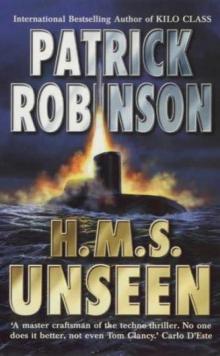 H.M.S. Unseen am-3
H.M.S. Unseen am-3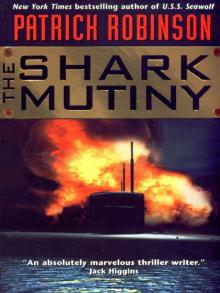 The Shark Mutiny (2001)
The Shark Mutiny (2001)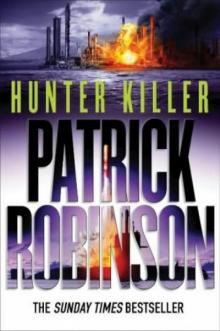 Hunter Killer am-8
Hunter Killer am-8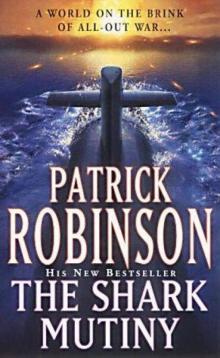 The Shark Mutiny am-5
The Shark Mutiny am-5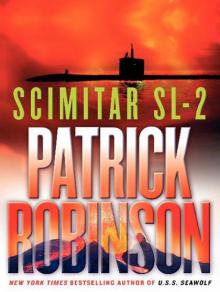 Scimitar SL-2
Scimitar SL-2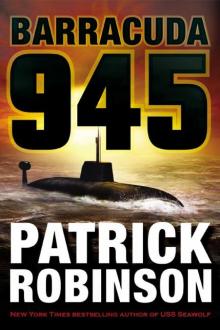 Barracuda 945 am-6
Barracuda 945 am-6 Hunter Killer
Hunter Killer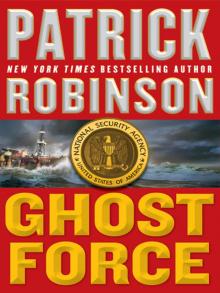 Ghost Force
Ghost Force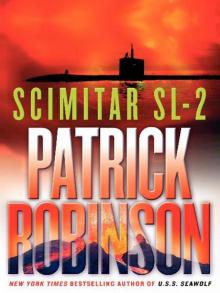 Scimitar SL-2 (2004)
Scimitar SL-2 (2004)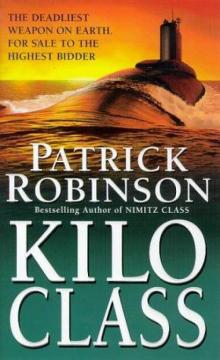 Kilo Class am-2
Kilo Class am-2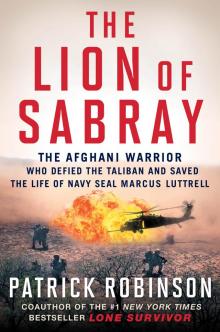 The Lion of Sabray
The Lion of Sabray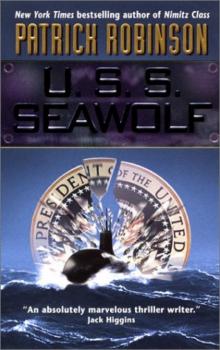 U.S.S. Seawolf am-4
U.S.S. Seawolf am-4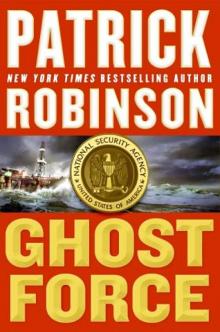 Ghost Force am-9
Ghost Force am-9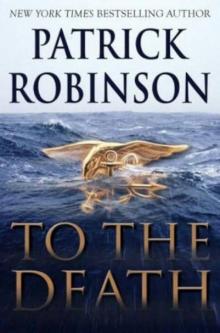 To the Death am-10
To the Death am-10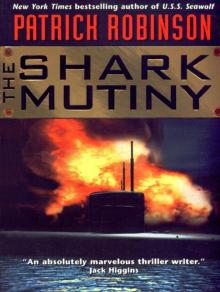 The Shark Mutiny
The Shark Mutiny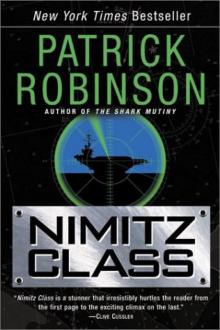 Nimitz Class am-1
Nimitz Class am-1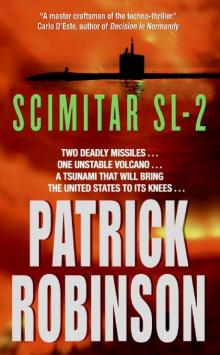 Scimitar SL-2 am-7
Scimitar SL-2 am-7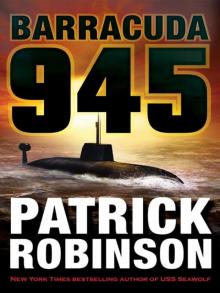 Barracuda 945
Barracuda 945 Intercept
Intercept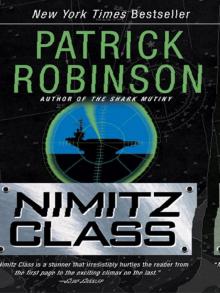 Nimitz Class (1997)
Nimitz Class (1997)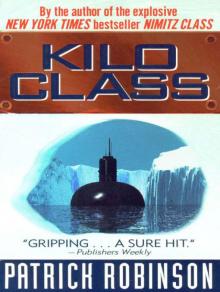 Kilo Class
Kilo Class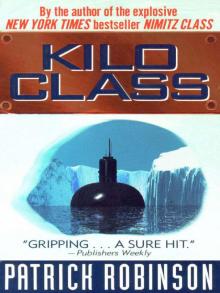 Kilo Class (1998)
Kilo Class (1998) Diamondhead
Diamondhead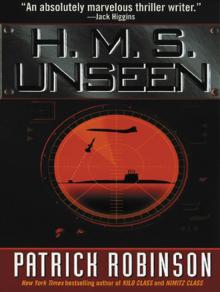 H.M.S. Unseen
H.M.S. Unseen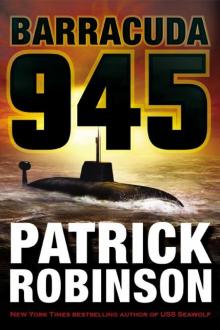 Barracuda 945 (2003)
Barracuda 945 (2003)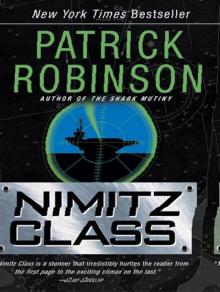 Nimitz Class
Nimitz Class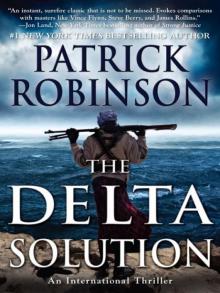 The Delta Solution
The Delta Solution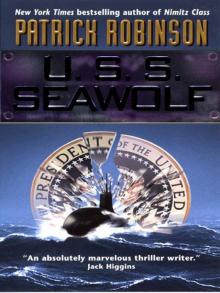 U.S.S. Seawolf
U.S.S. Seawolf